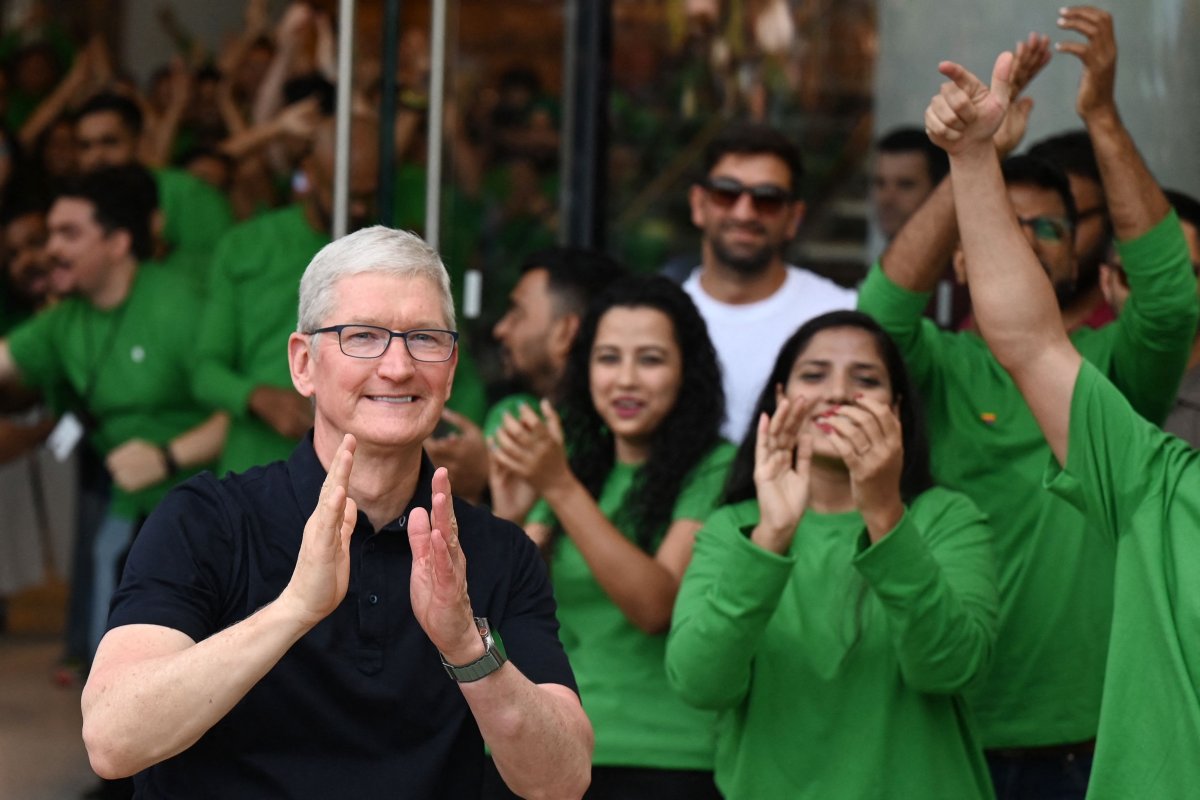California tech giant Apple is set to begin manufacturing batteries for its latest iPhone models in India, signaling a strategic supply chain shift to reduce its yearslong dependence on China.
"If all goes well with iPhone 16 battery supply, Apple plans to move more iPhone battery production to India," said a report on Wednesday by the Financial Times, citing a source close to the Cupertino-based company.
India's government, after some initial hesitance, has introduced new industrial policies that welcome companies looking to move their bases out of China while leveraging India's growing prowess in manufacturing.
Apple's decision is part of a slow-moving process to diversify its iPhone production, which has relied on suppliers and assemblers in China for over a decade. The move will also help it capture more future market share among India's rising middle class.
New Delhi is rivaling Beijing with a competitive economy that is attracting foreign investors against a backdrop of long-running geopolitical tensions between the two Asian neighbors.
Apple, which released the iPhone 15 this past fall, has become a first mover by setting up a supply chain in India for future smartphone models just as the Chinese market's prospects remain shaky and unpredictable.
Key battery manufacturers, including China's Desay and Taiwan's Simplo Technology, both current Apple suppliers, have been encouraged to set up new factories in India, the FT said. Apple has asked Simplo in particular to increase its production capacity in India for future orders.
On Monday, Rajeev Chandrashekhar, India's minister for skill development and entrepreneurship, said on X (formerly Twitter) that Japanese electronic components manufacturer TDK, a leading supplier of cells to Apple, would set up a 180-acre facility in Manesar, in northern India, to build batteries for made-in-India iPhones.
TDK's facility would supply batteries to Sunwoda Electronic, an assembler of Apple's lithium-ion batteries in the southern Chinese hub of Shenzhen, according to Reuters.
Apple's existing partners in India include local conglomerate Tata and Taiwanese assemblers Foxconn and Pegatron.
Foxconn, with the bulk of its production in China, is responsible for assembling some 80 percent of iPhones released worldwide. Last month, the company announced plans to invest $1.5 billion in projects in India in order to meet Apple's "operational needs."
Ming-Chi Kuo, an Apple specialist based in Taiwan, said in a November newsletter that the global share of iPhone models made in India could rise to 20-25 percent by 2024, up from the current 12-14 percent. By mid-2025, the standard iPhone 17 could be the first model to begin development outside of China, Kuo said.

Not all companies are finding the transition to India straightforward.
Foxconn's Chinese rival Luxshare failed to secure Indian government approval for an expansion and instead turned to Vietnam, according to the FT. An unnamed India official also dismissed Desay's expansion in the country.
Apple, the world's most valuable company, worth some $2.9 trillion, was among the major foreign investors that felt the shock of China's heavy-handed and at times unpredictable lockdown policies during the COVID-19 pandemic.
In the middle of the iPhone 14 release late last year, production slowed at Foxconn's largest assembly plant in Zhengzhou in central China—employer of some 200,000 staff—after workers quit over living and pay arrangements, before Beijing lifted virtually all anti-virus controls in December 2022.
China's state media outlets have sought to play down the gradual shift in manufacturing from China to India by arguing that foreign companies would face a challenging regulatory environment in India.
"Indian authorities are leveraging a string of measures, including imposing fines, freezing deposits and confiscating assets, to target competitive and successful foreign companies operating in the country," the state-backed China Daily newspaper said in late October.
Uncommon Knowledge
Newsweek is committed to challenging conventional wisdom and finding connections in the search for common ground.
Newsweek is committed to challenging conventional wisdom and finding connections in the search for common ground.
About the writer
Aadil Brar is a reporter for Newsweek based in Taipei, Taiwan. He covers international security, U.S.-China relations, and East Asian ... Read more
To read how Newsweek uses AI as a newsroom tool, Click here.








